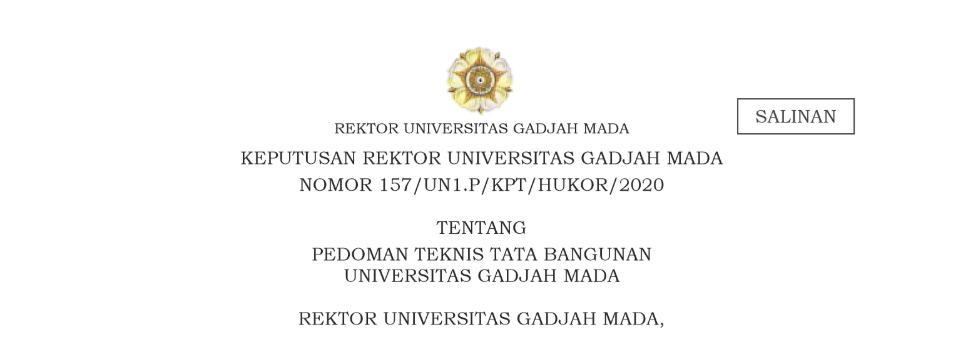
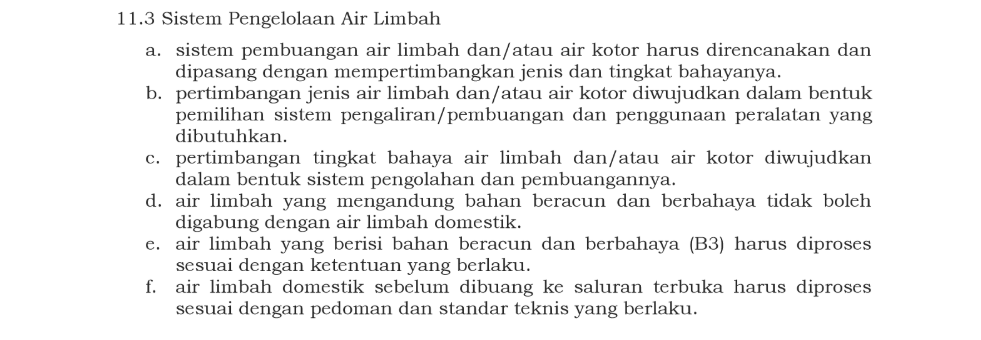

As part of its broader commitment to sustainability, UGM encourages its academic community to adopt sustainable lifestyles, emphasising the importance of maintaining proper wastewater management to protect the environment. This commitment is clearly outlined in Rector’s Decree Number 157/UN1.P/KPT/HUKOR/2020 (pg. 40, section 11.3), which mandates that wastewater management must adhere to the provisions of the Indonesian National Standards (SNI) and/or other relevant regulations governing wastewater management. The university has implemented several measures to ensure responsible water discharge practices:
- Wastewater Treatment Facilities are installed across the campus, including in laboratories and the UGM Academic Hospital. These systems are designed to treat wastewater effectively before it is discharged, thereby minimising environmental impact.
Laboratory Waste Treatment Plant
UGM Academic Hospital Wastewater Treatment Plant
- Regular water quality monitoring is done by conducting regular assessments of surface water and wastewater quality. This ongoing monitoring ensures that water discharge meets established standards and helps in the early detection of potential issues. Water quality monitoring activities are compiled in the form of reports. Two types of water are monitored: river water and clean water. Testing of river water and clean water is routinely carried out every semester.

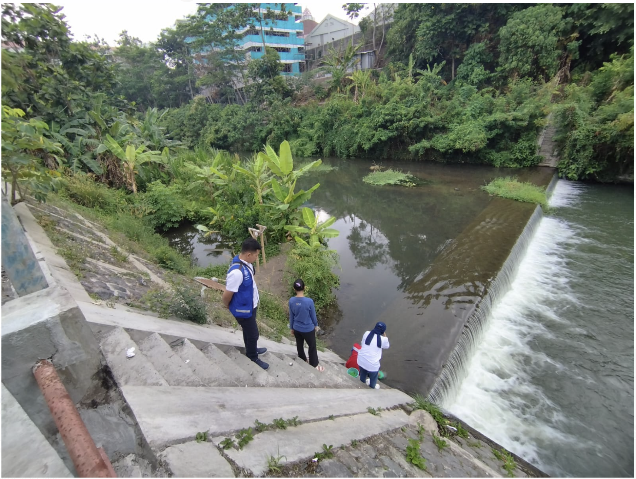
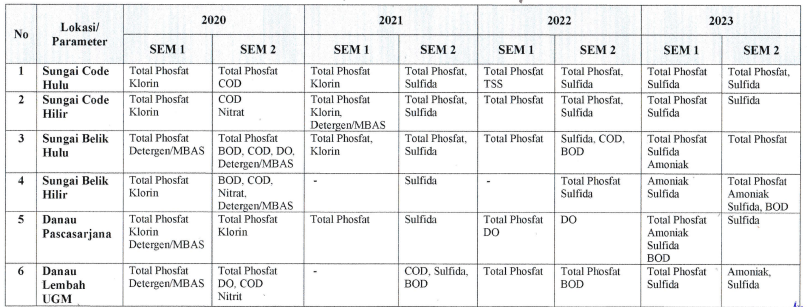
(a) Water quality control of the UGM Valley Lake
(b) Water quality control at Upstream Code River
(c) Water quality monitoring data from several locations from 2020 – 2023.
The image in Figure … is a table showing water quality monitoring data from several locations over a period from 2020 to 2023. The locations are different water bodies, such as rivers and a lake in and near the UGM main campus area in Yogyakarta, Indonesia. The table is organised by year and semester (SEM 1 and SEM 2), displaying the parameters measured at each location.
Furthermore, the quality of clean water supplies is also monitored regularly. Water quality tests within the past 3 years have met acceptable standards for drinking water, and no significant chemical or microbiological contamination was detected. Laboratory results for testing clean water in the UGM environment in 2022 by taking sample points in accordance with the UGM Environmental Document.
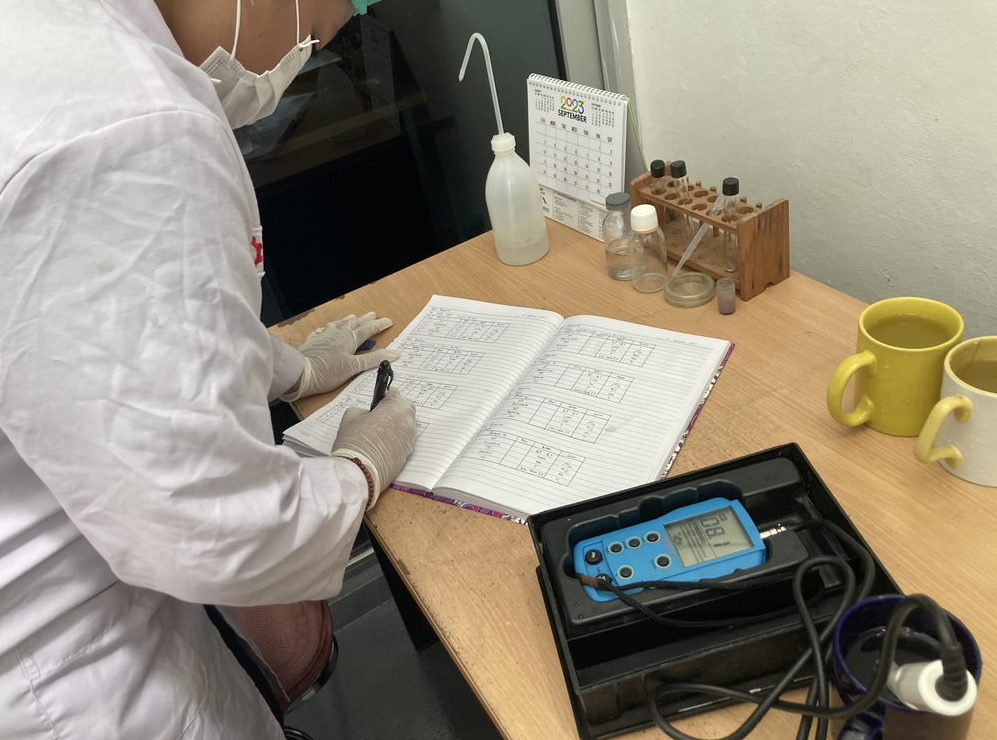
- UGM complies with national water discharge regulations, aligning its practices with regulations set by the regional regulation published by the Governor of the Special Region of Yogyakarta on sewage water treatment (PERDA Prov DIY No. 2 tahun 2013).
These standards are designed to safeguard environmental and public health. UGM, through the Centre for Occupational and Environmental Health, Safety, and Security (Kantor K4L), has fully implemented water quality monitoring every semester. Monitoring activities are based on:
-
- Clean Water Quality Standard No. 416/Menkes/Per/IX/1990 (https://komara.weebly.com/uploads/6/5/3/7/6537907/f_permenkes_416_1990_syarat__pengawaasan_kualitas_air.pdf)
- Government Regulation of the Republic of Indonesia No. 22 of 2021 concerning Environmental Maintenance and Management (https://www.fao.org/faolex/results/details/en/c/LEX-FAOC209753/)
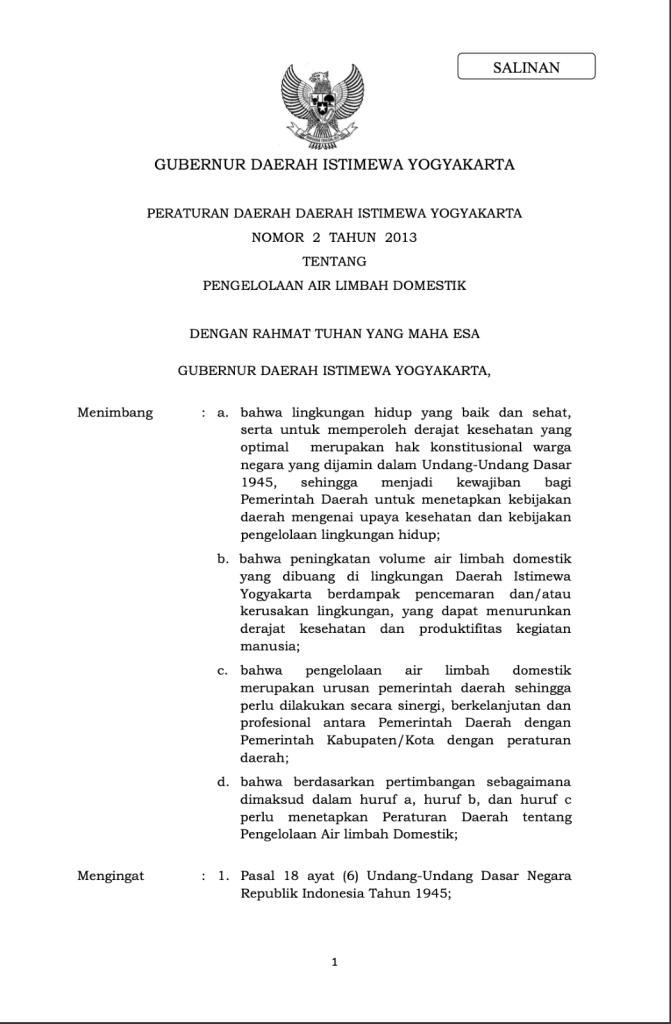
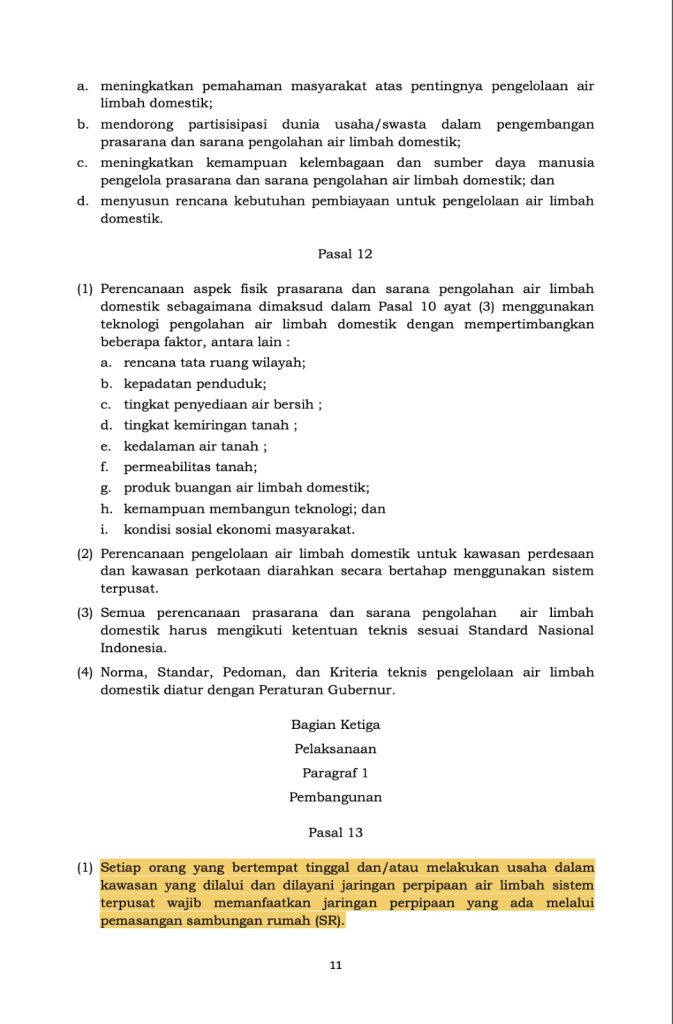
Regional regulation on domestic sewage water treatment which enforces institutions in the province of the Special Region of Yogyakarta, including Universitas Gadjah Mada, to dispose the sewage water in their system.
References:
- Rector’s Decree Number 157/UN1.P/KPT/HUKOR/2020
- Laboratory Waste Treatment Plant
- UGM Academic Hospital Wastewater Treatment Plant
- Sanitation Hygiene Test Results Sem 1 – April 2022
- Sanitation Hygiene Test Results Sem 2 – October 2022
- PERDA Prov DIY No. 2 tahun 2013
- Kantor K4L
- Clean Water Quality Standard No. 416/Menkes/Per/IX/1990
- Government Regulation of the Republic of Indonesia No. 22 of 2021
